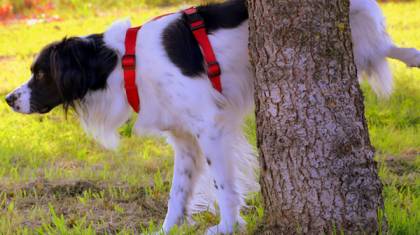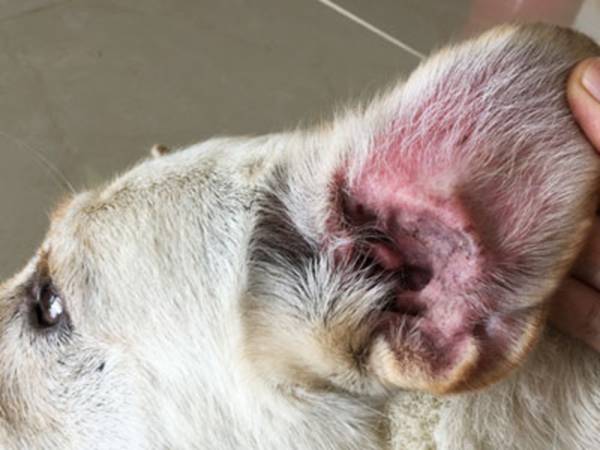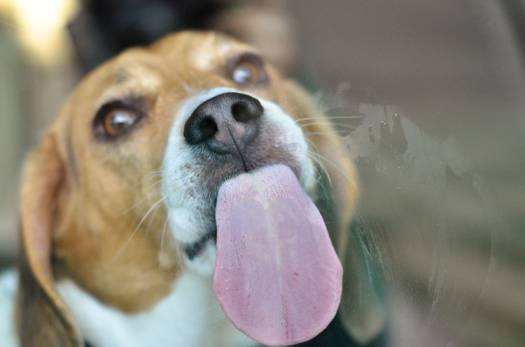Aggression in dogs can be more than just an uncomfortable problem. It can be a huge problem. In fact, dogs that are aggressive toward others is a common problem, possibly one you’ve already experienced. Have you ever been on a walk and noticed your dog growled at a dog he didn’t know? Or maybe another dog was growling and showing his teeth at your dog? This happens every day, and can be a horrible situation if the two dogs begin to fight.
Connect with a verified veterinarian in minutes. Licensed vets are available 24/7 to answer your questions. No need to worry about your furry family member.
It can happen that a dog is aggressive once in a great while. Think of how you react to other people sometimes. There are people you like, and others you’re afraid of or you just don’t like for some reason. It happens. Well the same can happen with dogs. On rare occasions it’s possible two dogs simply won’t get along, for whatever reason. If your dog has only been aggressive once or twice, then he may not have a problem. However, dogs that are almost always aggressive towards other dogs are a major problem.
The aggression in some dogs is sometimes situational. There are some dogs that are possessive of their people, toys, and spaces, while other dogs are more dominant and want to let other dogs know this. Then there are dogs who may be afraid, shy or even anxious and become aggressive towards other dogs for these reasons. If your fur baby happens to be one that is aggressive toward other dogs, don’t give up. It is possible to “cure” your dog of this behavior.
Recognizing Dog on Dog Aggression
One problem many pet parents have is admitting and recognizing that their canine companion has a problem with dog on dog aggression. It’s like having a child that misbehaves—some parents tend to overlook their own child’s issues, putting the blame on another child. The same happens with pet parents. They may blame the other dog for the aggression, when it’s their own dog that’s causing the problem.
The first step in helping your dog with his aggression is admitting he has a problem and then recognizing the signs of dog aggression.
Signs of aggression can include the following:
- Growling
- Lifting of lip, showing teeth
- Snapping/biting/nipping
- Lunging toward the other dog
- Dog becomes still/rigid
These signs may be accompanied by other signs including your fur baby acting fearful, showing signs of submission (including licking his lips, crouching, tucking his tail under, etc.).
However, when one dog is aggressive toward another in the same home, the dominant dog may stare, block the other’s entrance to a room or food, and more. Sometimes it may be that something specific will set off one dog toward another. This may happen if one dog is very possessive of his bed, food & water, toys, and more. You may notice that one specific thing seems to trigger the aggression, and otherwise the dogs may do OK together the rest of the time.
What Causes Dog Aggression Towards Other Dogs?
My dog is aggressive towards other dogs—why? There are many reasons a dog may be aggressive toward another dog. In some instances, the dog may not have been properly socialized as a puppy, while other dogs may be aggressive due to being abused or neglected at some point in the past. It can also be caused if the dog had an encounter with a highly aggressive dog in the past. And dogs that come from a dog-fighting background tend to have higher rates of dog-on-dog aggression.
Some of the most common reasons for aggression in dogs include:
- Protective aggression: the dog is protecting his family/pack.
- Territorial aggression: dog is protecting his space or home.
- Possessive aggression: dog protects food, toys, bones, bedding—anything he values.
- Fear aggression: dog is fearful, tries to retreat, but will attack when backed into a corner.
- Defensive aggression: similar to above
- Social aggression: reacts with aggression to other dogs in a social situation.
- Frustration aggression: if a dog is being restricted on a leash or in a yard, he may be stimulated and can’t act on this stimulation, so acts aggressively.
- Redirected aggression: dog may become aggressive toward someone trying to break up a dog fight and becomes aggressive toward that person or expresses aggressiveness to another dog that’s within reach.
- Pain aggression: when dog is injured or in pain
- Sex aggression: most often in males that have not been neutered or can also happen when two female dogs are fighting over the attention of a male.
- Predatory aggression: this can happen when a dog chases wildlife such as deer, small rodents, etc. Or this can happen in some dogs when around young children when they chase a dog.
There are many reasons can cause a dog to be aggressive toward other dogs. It’s not always easy to see what’s causing the problem. If your fur baby shows aggression towards other dogs, it can help if you note when (the day/time of day) the problem occurs, try to figure out what may have caused it, and the circumstances of when the aggression occurred. You might begin to see a pattern as to what causes your dog to act out in that way. Always remember that aggression is a sign of an underlying problem of some kind. Before you can “cure” it, you need to see what may be bringing this behavior out in your dog. Remember, too, that if your dog doesn’t have an underlying health issue, then don’t try to cure his aggression on your own. In that case, you’ll need the assistance of a professional dog behaviorist.

Review symptoms, medications & behavior to keep your pets healthy with a Vet Online in just minutes.
Ask a Vet Live NowAre Some Dog Breeds More Aggressive Than Others?
First, it’s important to note that any dog of any breed, or mixed breed, can become aggressive. A normally passive dog, with no history of aggressive behavior, can all of a sudden show aggression. Having said that, there are some dog breeds that may have a higher tendency to be aggressive.
These breeds are usually trained to work with and for humans. Here, think of hunting dogs, dogs used to shepherd sheep and cattle, guard dogs, etc. Most of these breeds have been traditionally bred for these traits and still carry these traits in their DNA today, even if the breed is no longer used for work.
However, never judge a dog by its breed. Each dog is an individual and has his own past of dealing with people and other dogs, etc. While it’s a good idea to research a breed before adopting a fur baby, don’t rely solely on the breed to determine how aggressive the dog may or may not be.
Diagnosing Dog Aggression — Why is my Dog Aggressive Towards Other Dogs?
If your canine companion doesn’t have a history of aggressive behavior, and all of sudden begins to show some of the signs above toward other dogs, then it may be time to visit the vet. There could be an underlying health issue causing your fur baby to act this way.
Some health issues that can cause aggression include:
- Hypothyroidism
- Pain (from injuries or other health issues)
- Neurological problems (epilepsy, brain tumors and more)
Most of the time, early treatment can curb this aggressive behavior, as well as help your dog feel better. It could be your fur baby needs medication or other treatments to fix the underlying issue. Once that’s fixed, he will probably go back to his normal, peaceful self again. If the vet finds your dog’s health is just fine, they recommend that you and your dog seek the help of a professional dog behaviorist.
Dog Attacks Other Dogs – Find a Professional Dog Behaviorist
Again, dog aggression is a very serious problem, so never try to solve it on your own. Instead, seek out the assistance of a professional dog behaviorist who is trained to deal with these problems. For one thing, a professional may be able to help you figure out what’s causing your fur baby to act out. If the vet didn’t find any health issues, then there’s another reason your dog’s acting this way. If you’re not sure where to find a dog behaviorist, then your vet may have some referrals for you. You can also contact the Association of Professional Dog Trainers for additional help.
You’ll need to look for a professional behaviorist who is a CAAB (Certified Applied Animal Behaviorist or ACAAB), a CPDT (Certified Professional Dog Trainer), or a veterinary behaviorist (CPDT). Make sure the person you hire has the training and experience necessary to deal with aggressive behavior in dogs.
Can Aggressive Behavior in Dogs Be Cured?
This is a common question that pet parents of aggressive dogs often ask. There are methods that can be used to help modify an aggressive dog’s behavior; however, it can never be assumed that a dog is truly “cured” of being aggressive. There’s no way to guarantee that a dog who was once acting in an aggressive manner won’t do so again.
Sometimes the only thing that can be done is modify the dog’s behavior by reducing or eliminating the situations that bring out his aggressiveness. The risk will always be there. As a pet parent, you need to also understand that your dog is your responsibility. If you have an aggressive dog, then you need to take steps to keep him, other people and dogs safe. This means taking all precautions necessary to keep him and others from being hurt. This may not be easy, but this is your responsibility as a pet parent.
It’s also important to keep in mind that any dog has the ability to all of a sudden become aggressive. You just never know when the right circumstances will come together and bring out this behavior in any dog. It can even happen in dogs who have never been aggressive in the past. So, you always need to be aware of what your fur baby’s doing, how he’s acting, etc. You can never let your guard down, even with the most passive dog.
Connect with a verified veterinarian in minutes. Licensed vets are available 24/7 to answer your questions. No need to worry about your furry family member.

Kim
Kim is a talented author, who loves animals especially dogs. She engaged in writing books and articles relating to animals a decade ago. Kim resides in Chicago with her husband and son. The family is the proud owner of a dog and a parrot (Jack and Lily). Kim wanted more than these two pets, but her husband put his foot down... She often visits elementary schools to talk to the kids about what she learned about pets and how they could learn from them.
Review symptoms, medications & behavior to keep your pets healthy with a Vet Online in just minutes.
Ask a Vet Live Now



